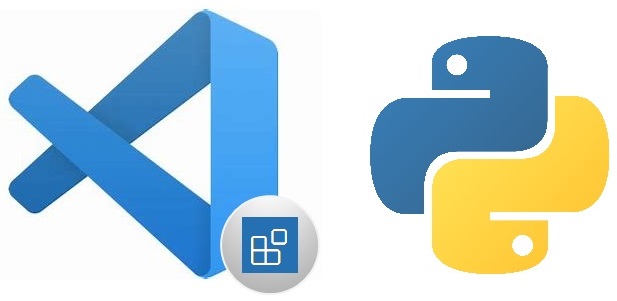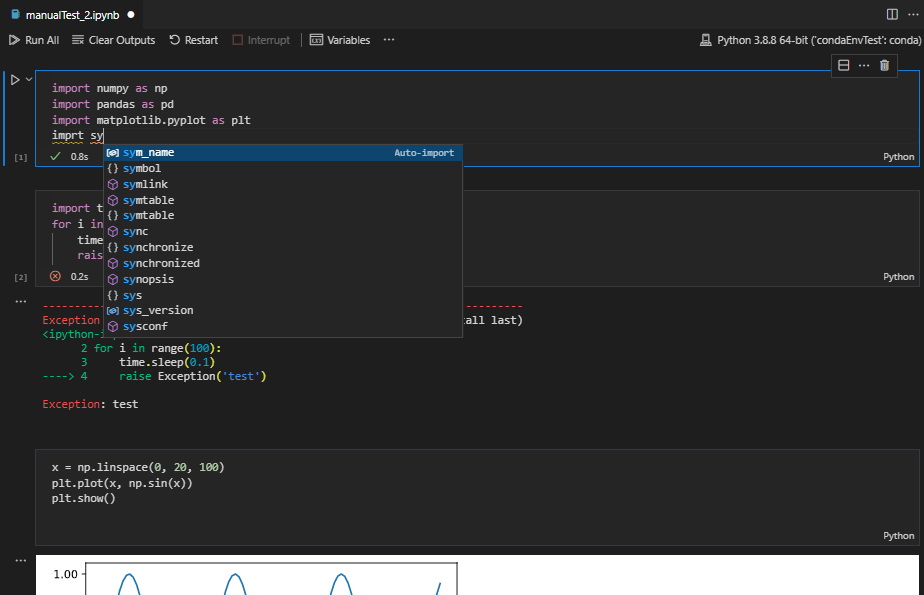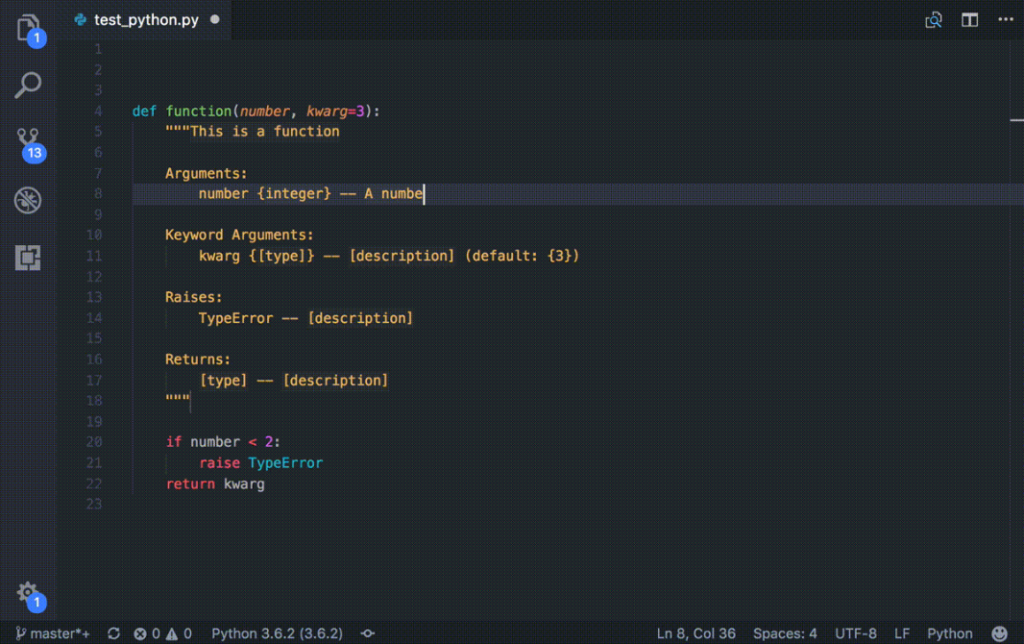
Python is one of the most popular programming languages, known for its simplicity, versatility and its ability to run on all platforms. Visual Studio Code (VS Code), a lightweight and powerful code editor, is commonly used for Python development. In this guide, we’ll delve into ten essential VS Code extensions that every Python developer should consider to transform their setup into a robust Python IDE.
Contents
1. Python
The cornerstone of Python development in VS Code is the official Python extension by Microsoft. This extension offers a comprehensive suite of tools to streamline your coding process.
- IntelliSense: Intelligent code completion and navigation.
- Linting: Support for multiple linters like Pylint and Flake8 to ensure code quality.
- Debugging: Advanced debugging features including breakpoints, watches, and call stacks.
- Jupyter Notebooks Integration: Seamless support for data science workflows.
- Environment Management: Easily manage Python environments, including virtual environments and Conda.
This extension is indispensable for writing, debugging, and optimizing Python code in VS Code.
2. Jupyter
Jupyter Notebooks have revolutionized data science and educational content, enabling the creation of documents that combine live code, equations, visualizations, and narrative text.

The Jupyter extension brings all this functionality into VS Code:
- Notebook Creation and Editing: Work on .ipynb files directly within VS Code.
- Interactive Data Visualization: Explore and visualize data interactively.
- Kernel Management: Run cells, manage kernels, and export notebooks effortlessly.
- Python Environment Integration: Compatible with your existing Python setups.
If your work involves data analysis, machine learning, or teaching, this extension is a must-have.
3. Pylance
Pylance enhances the Python development experience in VS Code by providing advanced type information and IntelliSense, powered by static type checking with type hints.
- Enhanced Code Completion: Fast and accurate suggestions as you type.
- Type Checking: Leverages Pyright for precise type hinting and error detection.
- In-editor Documentation: Access rich tooltips and documentation without leaving your code.
- Performance Optimization: Handles large codebases with ease.
Pylance helps you write more reliable Python code by catching potential errors early.
4. AREPL for Python
AREPL (Automatic REPL for Python) offers real-time code evaluation as you type, allowing you to quickly spot errors and refine your code.
- Instant Feedback: Evaluate code snippets in real-time without running them manually.
- Variable Display: View the final state of variables in a collapsible JSON format.
- Error Detection: Immediate error display with stack trace.
- Customizable Settings: Tailor the extension’s behavior to your preferences.

AREPL is ideal for experimenting with code snippets and debugging on the fly.
5. GitHub Copilot
GitHub Copilot acts as an AI-powered pair programmer, helping you write code faster and more efficiently. Integrated into VS Code, it can generate code, fix errors, and even answer questions about your code.
- AI Code Completions: Generate code snippets from natural language descriptions or function names.
- Context-aware Suggestions: Copilot provides suggestions based on the context of your code.

GitHub Copilot Chat
Building on GitHub Copilot, the GitHub Copilot Chat extension offers conversational AI assistance within VS Code:
- Interactive Chat: Ask questions about your code and receive explanations or suggestions.
- Collaborative Features: Tag participants in chats for targeted assistance.
6. autoDocstring
Writing docstrings is crucial for documenting your code, but it can be tedious. The autoDocstring extension simplifies this process by automatically generating docstrings for your functions and methods.

- Automated Docstring Generation: Supports various docstring formats, such as Google and reStructuredText.
- Customizable Templates: Match the docstring format to your project’s style.
This extension encourages best practices in documentation, improving code readability and maintainability.
7. Pylint
Pylint is a powerful static code analyzer that integrates directly into VS Code, providing real-time feedback on code issues.
- Error Checking: Identifies errors without running your code.
- Coding Standards Enforcement: Ensures compliance with your coding standards.
- Customizable Checks: Enable or disable specific checks and write custom plugins as needed.
- Detailed Reports: Track code quality over time with comprehensive reports.
Pylint is essential for teams enforcing consistent coding standards across projects.
8. Flake8
Flake8 is another popular linting tool that checks your Python code for style violations according to PEP 8
- PEP 8 Compliance: Flags potential issues like unused imports and undefined names.
- Customizable Rules: Ignore specific rules or directories as needed.
- Integration with Other Tools: Works well with tools like Black and isort.
Flake8 helps maintain clean, error-free code that adheres to Python’s best practices.
Pylint vs Flake8
Pylint is a comprehensive and opinionated tool for deep code analysis and enforcing coding standards, while Flake8 is a lightweight, faster tool focused on PEP 8 compliance and basic linting, often extended with plugins. In real world programming, you’ll end up using both the tools for achieving the best results.
9. Python Test Explorer
The Python Test Explorer extension offers a user-friendly interface for managing and running Python tests within VS Code.

- Test Discovery: Supports unittest, pytest, and Nose.
- Test Results Visualization: View results in a dedicated sidebar.
- Integrated Debugging: Debug tests directly from the interface.
- Test Filtering: Run specific tests or groups of tests with ease.
This extension is particularly useful for managing extensive test suites in large projects.
10. Python Indent
Python Indent is a Visual Studio Code extension designed to automatically manage indentation in Python code. Python relies heavily on indentation to define code blocks, such as those within functions, loops, and conditionals. Proper indentation is crucial in Python, as incorrect indentation can lead to syntax errors or unintended behavior.
- Automatic Indentation Adjustment: Automatically adjusts indentation levels as you type, helping to maintain consistent code formatting.
- Smart Indentation: Intelligently indents/outdents lines based on the current code context, reducing the need for manual adjustments.
- Customizable Indentation Rules: Configure the extension to match your preferred indentation style, tabs or spaces, and set the number of spaces per indentation level.
- Enhanced Readability: Improve the readability and maintainability of your Python code.
Python Indent is especially useful for developers who want to streamline their coding process and avoid common indentation errors. By automating the indentation process, it allows you to focus on writing clean, functional code without worrying about formatting issues.
Wrapping-up
Visual Studio Code, when equipped with the right extensions, becomes an incredibly powerful environment for Python development. The ten extensions covered here provide essential tools for writing, testing, debugging, and documenting your Python code. Whether you’re a seasoned developer or just getting started, these extensions will help you maximize your productivity and code quality in VS Code.
Integrating these tools into your workflow will empower you to write cleaner, more efficient code, collaborate effectively, and tackle the challenges of Python development with confidence. As the ecosystem of VS Code extensions continues to evolve, staying updated with the latest tools will ensure you remain at the forefront of Python development.



[…] Python Internals Explained: A Comprehensive Technical Guide for C# Developers 10 Essential VS Code Extensions for Python Development in 2024 […]
[…] 10 Essential VS Code Extensions for Python Development in 2024 […]
[…] 10 Essential VS Code Extensions for Python Development in 2024 5 reasons you should switch from VS Code to VSCodium […]